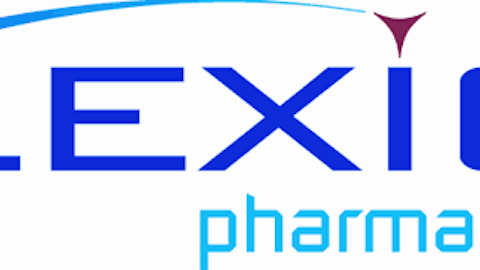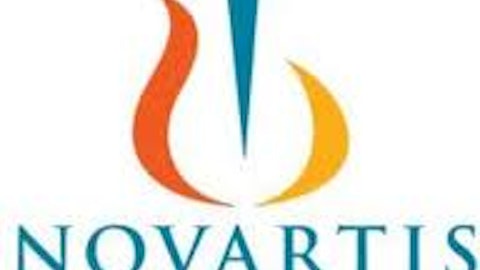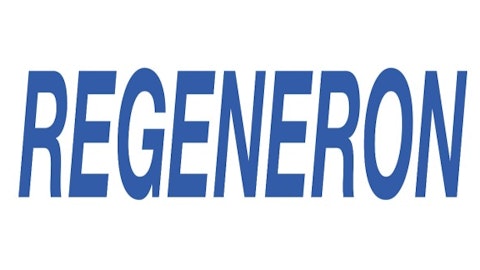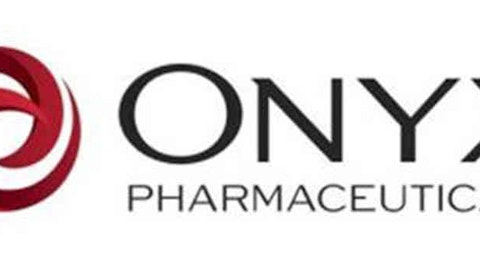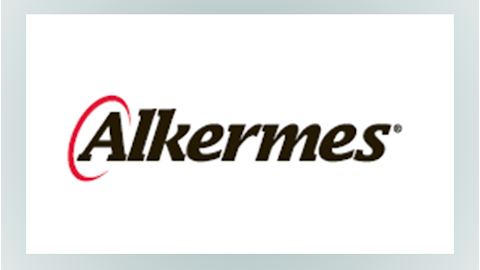The biotech industry is known for fast paced acquisitions and rapid market consolidation. Larger pharmaceutical companies headed towards patent cliffs often scramble to acquire smaller companies to revive their drying pipelines. Meanwhile, startups frequently go public without any market approved drugs or sources of revenue. Sometimes, large fish get swallowed by even larger ones, and these acquisitions can secure important sources of constant revenue growth for years to come.

Rare diseases, expensive drugs
Alexion Pharmaceuticals, Inc. (NASDAQ:ALXN) only marketed product is Soliris, a humanized monoclonal antibody that was the first approved treatment for PNH (paroxysmal nocturnal hemoglobinuria), a rare disease which creates abnormally formed red blood cells that are mistakenly targeted and destroyed by the body’s immune system, leading to a massive loss of red blood cells. The disease only affects one to two people in a million annually.
Soliris can also be used to treat aHUS (atypical hemolytic uremic syndrome), an extremely rare genetic disease which causes blood clots in small vessels throughout the circulatory system, often causing kidney failure, organ damage and death. This disease is even rarer than PNH, affecting 0.4 people per million.
The cost to care for a single patient with Soliris can cost more than $400,000 per year – giving it the distinction of being the world’s most expensive drug. The drug was approved for use in the U.S. and Europe in 2007. Soliris’ patent expires in May 2015, but Alexion Pharmaceuticals, Inc. (NASDAQ:ALXN) has supplementary protection certificates that protect the drug up to 2020.
Soliris does not cure PNH or aHUS, but can stop the body from breaking down abnormally developed red blood cells, which helps patients avoid anemia. By occupying these two niches, Alexion’s Soliris faces no competition whatsoever. It is also considered an orphan drug, due to the rarity of PHN or aHUS.
A strong second quarter
For its second quarter, Alexion Pharmaceuticals, Inc. (NASDAQ:ALXN) earned an adjusted $0.64 per share, up 56% from the prior year quarter and topping the consensus estimate by four cents. Revenue surged 35% year-on-year to $370.1 million, also higher than the $365 million that analysts had expected.
However, Alexion Pharmaceuticals, Inc. (NASDAQ:ALXN)’s operating expenses rose 22.7% to $174.5 million, due to a 12.8% increase in R&D expenses and a 29.2% gain in selling, general and administrative expenses. These expenses indicate that Alexion realizes that its dependence on Soliris can’t last forever.
Alexion is experimenting with using Soliris to treat other diseases, such as e. coli hemolytic uremic syndrome (a rare form of anemia and uremia), neuromyelitis optica (which affects the optic nerve and spinal cord) and myasthenia gravis (a rare autoimmune neuromuscular disease). Expanding into these markets could increase Soliris’ revenue substantially.
Alexion is also working on asfotase alfa, which treats a rare metabolic bone disease, ALXN1102 and ALXN1103, which are focused on blood disorders, and ALXN1007, a treatment for inflammatory disorders. These efforts to expand its pipeline well ahead of its patent and supplementary protection expirations could turn out to be wise long-term investments.
Catching the eye of industry peers
Offering the world’s most expensive drug to a tiny patient base has caught the attention of other major pharmaceutical players over the past several years.
In 2009, PDL BioPharma Inc. (NASDAQ:PDLI) won a patent infringement case against Alexion, in which the latter was required to pay $25 million in exchange for a license to sell Soliris under PDL BioPharma Inc. (NASDAQ:PDLI)’s “Queen patent”, named after co-founder Cary Queen. Alexion was also required to pay a royalty of 4% on sales of any drug created under PDL’s patent. Many of the Queen Patents, which focus on humanizing antibodies, will expire this December, which is expected to significantly weaken the company’s position against companies that use its patents, which also include Roche and Genentech.
Novartis AG (ADR) (NYSE:NVS) has also targeted Alexion on two occasions. In 2010, it challenged Alexion’s European patent for Soliris, because it needed the patent to create an experimental eye drug for treating age-related vision loss. The C5 antibody Novartis AG (ADR) (NYSE:NVS) needed for the treatment would have infringed on the Soliris patent. A year later, Novartis sued Alexion, along with AstraZeneca plc (ADR) (NYSE:AZN) and Biogen Idec Inc. (NASDAQ:BIIB) in 2011, claiming that several of their drugs, including Soliris, infringed on the company’s 1997 U.S. patent for diagnostic gene sequences. Neither case has been conclusive.
Acquisition buzz
Recently, the market has been buzzing with rumors about Swiss pharmaceutical giant Roche, the world’s largest maker of cancer drugs, which could be interested in acquiring Alexion. With $1.52 billion in estimated sales of Soliris in 2013, Roche could have an instant blockbuster drug on its hands if it goes through with the acquisition. According to Reuters, Roche has been seeking financing for a potential bid, which would diversify its pipeline away from its traditional cancer drugs.
Last quarter, Roche reported strong sales of its top three cancer drugs – Rituxan, Herceptin and Avastin – which offset weaker sales of its hepatitis treatment Pegasys. Although Roche pharmaceuticals unit CEO Daniel O’Day refused to “comment on market rumors” during a CNBC interview, he noted that “outside innovation” complemented the “inside innovation” at the company, and pointed out that half of Roche’s pharmaceuticals portfolio are currently sold through partnerships with other companies.
With only one drug on the market, however, Alexion could be a costly, speculative acquisition that could cost $25 billion to $30 billion. Roche would also be paying a high premium for Alexion, considering that the stock currently trades at 33 times trailing earnings. Roche currently has $15 billion in cash but $26.35 billion in debt, giving it a debt-to-equity ratio of 147 – not the ideal balance sheet to be attempting such a massive deal.
The Foolish Bottom Line
In my opinion, Alexion is an interesting case study in the biotech industry. It has built a $21 billion business on a single, expensive drug which is used to diagnose some of the rarest diseases in the world. It also looks to continue this business model in the future, with the majority of its new treatments geared towards very rare diseases.
This is a stark contrast from other pharmaceutical companies, which often fight tooth and nail to introduce cutting edge treatments for major maladies, such as diabetes, cancer or hepatitis. Based on its second quarter numbers, Alexion’s future top and bottom line growth looks strong, and positive acquisition buzz could keep investors interested.
Leo Sun has no position in any stocks mentioned. The Motley Fool has no position in any of the stocks mentioned.
The article Extremely Expensive Drugs for Extremely Rare Diseases originally appeared on Fool.com and is written by Leo Sun.
Leo is a member of The Motley Fool Blog Network — entries represent the personal opinion of the blogger and are not formally edited.
Copyright © 1995 – 2013 The Motley Fool, LLC. All rights reserved. The Motley Fool has a disclosure policy.
